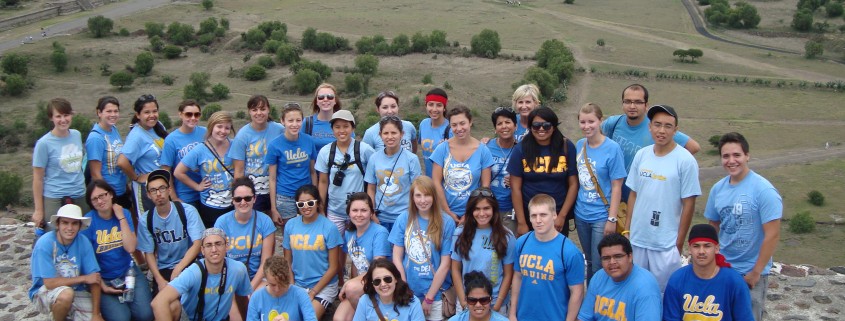Learning Beyond La Biblioteca
The second largest language spoken at home in the United States is Spanish, according to the U.S. Census Bureau’s American Community Survey.
Katie Hawkins, a fourth-year Spanish student, believes that it is beneficial to be bilingual in Spanish and English because it is helpful in finding a job, and because in a largely Spanish-speaking city like Los Angeles it is necessary in order to communicate with the majority of the population.
Given the prevalence of Spanish, UCLA’s Spanish and Portuguese Department offers real life practice to prepare students to speak the language proficiently and better serve the needs of diverse communities.
The budget crisis has made it difficult to maintain small class sizes, but according to the Chair of the Spanish and Portuguese Department, Maarten Van Delden, there are now capstone seminars, a new requirement in the Spanish major. These seminars give students the opportunity to practice their Spanish in a smaller class sizes and work closely with their professor on a research project.
Spanish Professor Juliet Falce-Robinson believes that being immersed in the culture is important for language proficiency, otherwise one remains disconnected with the language and much less likely to learn it.
For Hawkins, studying in Barcelona was critical for her acquisition of Spanish. Because all of her classes were in Spanish and her professors did not speak English she was forced to speak it all the time. In our everyday life, performing relevant tasks like these in a foreign language is what Professor Falce-Robinson defines as task-based learning.
Service-learning classes are another option for practicing Spanish in real life interactions. Service-learnging classes are required for the Spanish community and cultures major at UCLA, but are offered as electives for other students in the Spanish major.
Professor Falce-Robinson teaches a service-learning class that gives students the opportunity to use cultural and linguistic knowledge acquired in Spanish classes in real-world settings. She believes service-learning classes help students attain language proficiency from which both the student and the community benefit.
Maggie Sosnowski, fourth-year, Spanish and linguistics student, takes a service-learning class through which she serves the Latino community 8-10 hours a week while practicing her Spanish.
“It’s been 100 percent beneficial, it’s getting me to use my Spanish in settings where I never had to,” she said.
Personal interaction is an essential part of learning how to make tangible connections between knowledge and practice.
The UCLA Department of Spanish and Portuguese offers students options that provide meaningful and relevant learning experiences helping bridge language barriers in the community around them.



Leave a Reply
Want to join the discussion?Feel free to contribute!